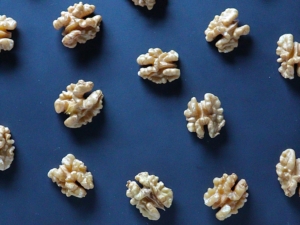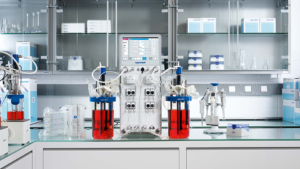First German Evotec BRIDGE in Heidelberg
On 13 April 2021, Evotec SE launched beLAB2122 in collaboration with Bristol-Myers Squibb company and five top-tier academic institutions. Mediated and supported by BioRN Life Science Cluster Rhine-Neckar, this $20 million BRIDGE brings together leading academic institutions in Southwestern Germany with the goal of efficiently advancing novel drug discovery projects.
Heidelberg is home to many renowned life science research institutes and well-connected to neighbouring centres of academic excellence. But even if the region has a distinct record of successful healthcare innovations, including Hepcludex the first drug for the treatment of Hepatitis D the tremendous quality and density of biomedical research has more in store. Although one limiting factor is funding, the most serious bottlenecks are the lack of robust industry-grade platforms and the lack of industry expertise. Indeed, it is notoriously difficult for academia to attract such experts. A combination of these factors is often referred to as the Valley of Death of translational research.
In early 2019, BioRN set out to analyse different international private-public partnership models for advancing early-stage life science projects. In parallel, Evotec sought to identify highly innovative centres of academic research in Europe to start new BRIDGE collaboration projects. After in-depth analysis and in close consultation with the regional key stakeholders, both BioRN and Evotec quickly established that the Evotec BRIDGE concept was the best match between the scientific excellence of a region committed to enhancing its translational portfolio and the comprehensive pre-clinical expertise offered by the BRIDGE platform and partners.
So why a BRIDGE? At its core, it is a fund linked to an award framework to finance and accelerate early academic drug discovery projects with the aim of generating new companies. Through the seamless integration of Evotec’s drug discovery and development platforms in an academic environment, the technological validation of such academic projects is fast-tracked. And why the Rhine-Main-Neckar region? With its high density of excellent biomedical research, the region fulfils a crucial requirement: the critical mass necessary for a steady flow of high-quality projects.
The first German BRIDGE
Mediated and accompanied by BioRN, beLAB2122 was launched in April 2021, bringing together the European Molecular Biology Laboratory (EMBL), the German Cancer Research Center (DKFZ), the Goethe University Frankfurt, Heidelberg University and the University of Tübingen, a novelty and landmark achievement both for the development of novel drugs originating from academia but also for the collaborative spirit between these institutions. For the first time, they are joining forces at this scale to bring novel therapeutics to the clinic. In homage to this collaborative spirit, the number 2122 highlights the connection between the partnership’s research institutes by referring to the combined length of Rhine, Main and Neckar, the three rivers that connect them.
Contact
Friedemann Loos
fl@biorn.org
www.biorn.org
www.belab2122.org
This article was originally published in Summer Edition European Biotechnology Magazine 2021.




